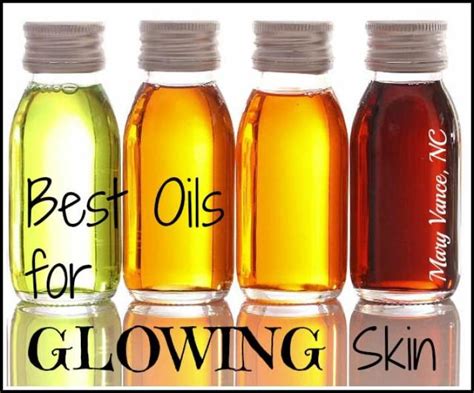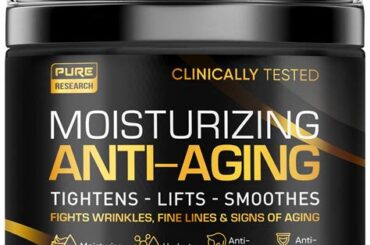What are essential oils?
Essential oils have become increasingly popular in recent years, with people embracing their natural and holistic benefits. But what exactly are essential oils? Essential oils are highly concentrated plant extracts that capture the natural scent and flavor of the plant. They are obtained through various extraction methods, such as steam distillation or cold-press extraction. These aromatic compounds are known for their therapeutic properties and have been used for centuries in traditional medicine practices.
One of the key benefits of essential oils is their ability to promote physical and emotional well-being. Using essential oils can help reduce stress and anxiety, improve sleep quality, boost mood, and even alleviate common ailments like headaches or muscle pain. These oils contain powerful compounds that interact with our senses and can have a profound effect on our overall health.
When it comes to choosing essential oils, there is a wide variety available, each with its own unique properties and benefits. Some of the top essential oils for radiant skin include lavender, tea tree, and rosemary. Lavender oil is known for its soothing and calming effects, making it ideal for irritated or inflamed skin. Tea tree oil has powerful antibacterial properties, making it an excellent choice for acne-prone skin. Rosemary oil is revitalizing and can help promote a youthful complexion.
- Enhance mood and promote relaxation
- Relieve stress and anxiety
- Improve sleep quality
- Boost the immune system
- Aid in digestion
Incorporating essential oils into your skincare routine can be a game-changer. However, it’s important to use them safely and effectively. Here are some tips for using essential oils:
- Dilute the essential oil with a carrier oil before applying it to the skin.
- Perform a patch test to check for any allergic reactions.
- Follow the recommended dosage and guidelines for each oil.
- Store essential oils properly in dark glass bottles to protect them from sunlight.
- Consult with a healthcare professional or aromatherapist for specific concerns or conditions.
| Essential Oil | Properties and Benefits |
|---|---|
| Lavender | Calming, soothing, promotes relaxation |
| Tea Tree | Antibacterial, antifungal, acne-fighting |
| Rosemary | Revitalizing, improves circulation, anti-aging |
In conclusion, essential oils offer a multitude of benefits and have the potential to enhance our physical, emotional, and even spiritual well-being. Whether you’re looking to improve your skincare routine, boost your mood, or relieve stress, there is an essential oil out there for you. Remember to educate yourself on their proper use and consult with professionals when necessary, to fully reap the benefits of these incredible natural remedies.
Benefits of using essential oils
Essential oils have been used for centuries for their various health and wellness benefits. These concentrated plant extracts are known for their powerful properties and are popular in the field of aromatherapy. Here are some of the key benefits of incorporating essential oils into your daily life:
1. Stress Relief: Essential oils, such as lavender and chamomile, are well-known for their calming and soothing effects. These oils can help reduce anxiety, promote relaxation, and improve sleep quality. Simply diffusing a few drops of essential oil in your bedroom can create a peaceful and serene atmosphere.
2. Boosting Immunity: Many essential oils possess antimicrobial and antiviral properties, which can help strengthen the immune system. Oils like tea tree, eucalyptus, and lemon are often used to create natural disinfectants and can be added to homemade cleaning products.
3. Pain Relief: Certain essential oils have analgesic properties that can help alleviate pain and inflammation. Peppermint oil, for example, has a cooling sensation and can be used topically to soothe headaches, muscle pain, and even menstrual cramps.
4. Skin Care: Essential oils are widely used in skincare products due to their ability to nourish and rejuvenate the skin. Oils like rosehip, jojoba, and frankincense can help moisturize dry skin, reduce the appearance of wrinkles, and improve overall skin texture and tone.
5. Mood Enhancement: The aroma of essential oils can have a significant impact on our mood and emotions. Citrus oils, such as orange and lemon, are known for their uplifting and energizing effects, while oils like patchouli and ylang-ylang can promote feelings of relaxation and joy.
These are just a few examples of the multitude of benefits essential oils can provide. However, it’s important to note that while essential oils can be highly beneficial, they should be used with caution. Always dilute essential oils in a carrier oil before applying them topically, and consult a healthcare professional if you have any underlying health conditions or concerns.
Top essential oils for radiant skin
When it comes to achieving radiant skin, incorporating essential oils into your skincare routine can be incredibly beneficial. Essential oils are concentrated plant extracts that have been used for centuries to enhance beauty and promote healthy skin. They are known for their nourishing, healing, and rejuvenating properties, making them a popular choice for skincare enthusiasts. In this blog post, we will explore some of the top essential oils that can help you achieve that coveted radiant skin.
1. Lavender Essential Oil: Lavender essential oil is widely known for its calming and soothing properties. It has anti-inflammatory and antimicrobial effects, making it suitable for all skin types. This versatile oil can help reduce redness, irritation, and acne. Its relaxing aroma can also promote a restful sleep, which is essential for healthy skin.
2. Frankincense Essential Oil: Frankincense essential oil is often referred to as the “king of oils” due to its numerous benefits for the skin. It has powerful anti-aging properties that can help reduce the appearance of fine lines, wrinkles, and age spots. Additionally, it promotes skin cell regeneration, leaving you with a more youthful and radiant complexion.
3. Tea Tree Essential Oil: Tea tree essential oil is well-known for its strong antimicrobial and anti-inflammatory properties. It can effectively treat acne breakouts by reducing redness, swelling, and inflammation. This oil also helps control excess oil production and prevents clogged pores, making it an excellent choice for oily and acne-prone skin.
4. Rosehip Essential Oil: Rosehip essential oil is packed with vitamins, antioxidants, and essential fatty acids. It is renowned for its ability to regenerate skin cells, improve skin elasticity, and fade scars and dark spots. This oil deeply hydrates the skin, leaving it soft, supple, and radiant.
Incorporating these essential oils into your skincare routine is easy. You can add a few drops to your favorite moisturizer, serum, or facial oil, or create your own DIY face masks and serums. However, it is essential to remember that essential oils are highly concentrated and potent, so they should always be diluted before applying them to the skin. Conduct a patch test to check for any allergic reactions and always follow the recommended usage guidelines.
| Essential Oil | Skin Benefits |
|---|---|
| Lavender | Calming, soothing, reduces redness and irritation |
| Frankincense | Anti-aging, promotes skin cell regeneration |
| Tea Tree | Antimicrobial, anti-inflammatory, treats acne |
| Rosehip | Regenerates skin cells, improves elasticity, fades scars and dark spots |
By incorporating these top essential oils into your skincare routine, you can achieve that radiant and glowing complexion you’ve always desired. Experiment with different oils and find the ones that work best for your skin type. Remember to always handle essential oils with care and enjoy the amazing benefits they provide for your skin.
How to incorporate essential oils into your skincare routine
When it comes to taking care of our skin, we are often bombarded with various products and routines that promise to give us that radiant and glowing complexion. However, have you ever considered incorporating essential oils into your skincare routine? Essential oils have been used for centuries for their therapeutic and healing properties. Not only can they benefit our overall well-being, but they can also be a great addition to our skincare regimen. In this blog post, we will explore how you can effectively incorporate essential oils into your skincare routine to achieve healthy and radiant skin.
1. Start with a Cleanser:
The first step in incorporating essential oils into your skincare routine is to start with a cleanser. Look for a gentle cleanser that suits your skin type. You can then add a few drops of your preferred essential oil to the cleanser before applying it to your face. Lavender oil, for example, is known for its soothing properties and can be beneficial for those with sensitive or irritated skin.
2. Add Them to Your Facial Toner:
Another way to include essential oils into your skincare routine is by adding them to your facial toner. After cleansing your face, simply mix a few drops of your chosen essential oil with your toner and apply it to your skin using a cotton pad. Tea tree oil, with its antibacterial properties, can be a great option for those with acne-prone skin.
3. Make Your Own Face Masks:
Incorporating essential oils into homemade face masks is not only fun but also highly beneficial for our skin. You can create a personalized face mask by mixing a few drops of essential oil, such as rosemary or eucalyptus, with natural ingredients like honey, yogurt, or clay. Apply the mask to your face and leave it on for about 15-20 minutes before rinsing off with warm water. This will help nourish and rejuvenate your skin.
| Essential Oil | Skin Type | Main Benefits |
|---|---|---|
| Lavender | All skin types | Soothing and calming |
| Tea Tree | Acne-prone skin | Antibacterial and anti-inflammatory |
| Rosemary | Aging skin | Stimulates circulation and reduces excess oil |
| Frankincense | Dry or mature skin | Hydrating and promotes cellular regeneration |
By incorporating essential oils into your skincare routine, you can enhance the effectiveness of your existing products and provide additional nourishment and benefits to your skin. However, it is important to remember that essential oils are potent and should be used with caution. Always perform a patch test before applying them to your face and dilute them with a carrier oil when necessary. With proper knowledge and careful selection, essential oils can become a valuable addition to your skincare routine, helping you achieve the healthy, radiant skin you desire.
Tips for using essential oils safely and effectively
Essential oils have gained immense popularity in recent years for their various health and wellness benefits. However, it is crucial to use them safely and effectively to reap their full potential. Here are some important tips to keep in mind when using essential oils:
1. Dilute before use: Essential oils are highly concentrated and can cause skin irritation or sensitization if used undiluted. It is essential to dilute them in a carrier oil, such as coconut oil or almond oil, before applying them to the skin. The recommended dilution ratio is typically 2-3 drops of essential oil per tablespoon of carrier oil.
2. Perform a patch test: Before applying any essential oil topically, it is advisable to conduct a patch test to check for any potential allergic reactions or skin sensitivities. Apply a small diluted amount of oil to a small area of skin and observe for any adverse reactions for 24 hours.
3. Choose high-quality oils: To ensure safety and efficacy, it is essential to select high-quality essential oils from reputable brands. Look for oils that are 100% pure, organic, and obtained through a steam distillation or cold-press extraction method.
4. Follow dosage guidelines: Each essential oil has its own recommended dosage guidelines. It is crucial to follow these guidelines to avoid any adverse effects. Using more than the recommended amount does not necessarily enhance the benefits and can instead lead to skin irritation or other complications.
5. Store properly: Essential oils are volatile substances that can degrade if not stored properly. Keep them in dark glass bottles away from direct sunlight and extreme temperatures. Additionally, ensure that the bottles are tightly sealed to prevent evaporation or oxidation.
By following these essential oil safety guidelines, you can enjoy their diverse benefits without any risks. Remember that essential oils should not be ingested unless under the guidance of a qualified aromatherapist, and always consult with a healthcare professional before using them if you have any underlying medical conditions.
Frequently Asked Questions
What are essential oils?
Essential oils are natural extracts from plants that contain the concentrated aromatic compounds of the plant. They are often used in aromatherapy and skincare for their various therapeutic properties.
What are the benefits of using essential oils?
Using essential oils can provide a range of benefits for the skin, including hydration, improved texture, reduced inflammation, and increased cell turnover. They can also have calming and stress-relieving effects when used in aromatherapy.
What are the top essential oils for radiant skin?
Some popular essential oils for radiant skin include lavender, rosehip, frankincense, tea tree, and geranium. These oils have properties that can help improve skin tone, reduce blemishes, and promote a healthier complexion.
How can I incorporate essential oils into my skincare routine?
You can incorporate essential oils into your skincare routine by adding a few drops to your moisturizer, cleanser, or face mask. You can also create your own DIY skincare products using essential oils as key ingredients.
What are some tips for using essential oils safely and effectively?
When using essential oils, it’s important to dilute them properly before applying to the skin to avoid irritation. Patch testing on a small area of skin is also recommended. Additionally, it’s crucial to research the specific properties and potential side effects of each essential oil before use.
Are there any precautions to consider when using essential oils?
Yes, there are a few precautions to consider when using essential oils. Some oils may be photosensitive, meaning they can make your skin more sensitive to sunlight. It’s important to use sun protection when using these oils. Pregnant women and individuals with certain medical conditions should also consult with a healthcare professional before using essential oils.
Can essential oils be used by everyone?
While essential oils can provide many benefits, they may not be suitable for everyone. Some individuals may have allergies or sensitivities to certain oils, and others may experience adverse reactions. It’s important to listen to your body and discontinue use if any negative effects occur. Consulting with a healthcare professional is advised if you have any concerns or underlying health conditions.





